Changing Lives for Rural Veterans through Peer Support
Nov 10, 2025
A special National Rural Health Day feature story by Jena Pierce.
Trigger Warning: The following article references suicide and mental health issues relating to military veterans in North Dakota. If you or someone you know is in need of assistance, please reach out to one of the resources at the bottom of the story or call the Veterans Crisis Line by dialing 988 and press 1, or text 838255.
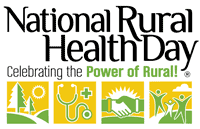 As National
Rural Health Day approaches on November 20, it's a
timely opportunity to spotlight the innovative work
happening in North Dakota's rural communities. Mental
health remains a pressing concern across North Dakota,
especially for military veterans. With two U.S. Air Force
bases and the largest veteran population centered around
Minot, the North Central region faces a sobering reality.
As National
Rural Health Day approaches on November 20, it's a
timely opportunity to spotlight the innovative work
happening in North Dakota's rural communities. Mental
health remains a pressing concern across North Dakota,
especially for military veterans. With two U.S. Air Force
bases and the largest veteran population centered around
Minot, the North Central region faces a sobering reality.
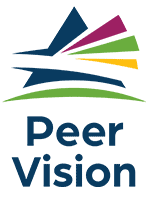 "We identified the suicide rate in
Minot, among veterans, active duty, and first responders,
is 1.5 times what would exist in the general population
for our area, and almost twice the national average,"
said Tamra Huesers, executive director of Peer Vision for Mental
Health. "We have a high suicide rate among our
veterans and military persons. We saw [mental healthcare]
as a real need."
"We identified the suicide rate in
Minot, among veterans, active duty, and first responders,
is 1.5 times what would exist in the general population
for our area, and almost twice the national average,"
said Tamra Huesers, executive director of Peer Vision for Mental
Health. "We have a high suicide rate among our
veterans and military persons. We saw [mental healthcare]
as a real need."
A Grant for Hope and Healing
In 2025, Peer Vision for Mental Health, which houses the Minot Vets for Vets program, was awarded a grant from the Blue Cross Blue Shield of North Dakota (BCBSND) Caring Foundation. This grant supports outreach to rural areas in North Central North Dakota, aiming to develop veteran peer support and reduce suicide rates among rural veterans.
Established in 1989, the BCBSND Caring Foundation is a private 501(c)(3) charitable organization. Through giving and investing, the Caring Foundation focuses on key health issues to help improve the health and well-being of North Dakotans and their communities. Caring Foundation staff collaborate with grantees to support non-profit sustainability, promote shared outcomes and create lasting change.
The Caring Foundation's Rural Health Grants Program, housed within the Center for Rural Health (CRH) at the University of North Dakota School of Medicine & Health Sciences since 2001, has made a significant difference in rural communities by the programs and innovations it has supported over the years.
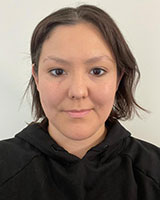
Holly Long, project coordinator for CRH, oversees the program and has seen firsthand the impact these dollars can have.
"The Peer Vision for Mental Health project in Minot is a powerful example of how rural communities can lead the way in addressing mental health challenges with compassion and innovation," Long explains. "By connecting veterans and rural residents through peer support, this initiative strengthens the bonds of trust and belonging that are often the first steps toward healing. It shows that meaningful change in rural health doesn't always start with large systems. It starts with people helping people, right where they live."
Peer Support: Building Community and Resilience
Peer support is more than just group discussion; it's about building a community of trust and shared experience.
"Peer support is persons who have been there and experienced something the same or similar to other persons and having come through it with some success, sharing their experiences with other people, and providing support," Huesers explained, referencing the concept of the "wounded healer." "It is more about building a community and building that core of support for individuals as they go through difficult things."
The peer support program offers a variety of activities, including art projects, creative writing, peer awareness, and both one-on-one and group discussions. Since receiving the grant, 18 individuals have completed Intentional Peer Support training; seven are veterans and 11 work for organizations serving veterans.
Intentional Peer Support Training: Expanding Access
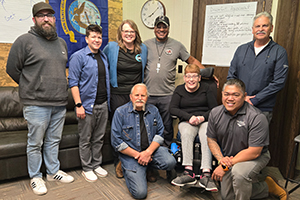
Support Core training, which includes
four veterans.
Intentional Peer Support training focuses on the dynamics between the supportive person and those being supported. It prepares peer support professionals to work with people who may have different worldviews or face power imbalances, helping uncover the untold stories behind behaviors.
"This training really investigates those issues and brings it into how you use that in a peer support setting. It is an intentional program and good training on how you can relate to difficult situations you may encounter with someone when doing peer support," said Huesers.
To become a peer support provider, participants complete 40 hours of training. The virtual option ensures that rural residents who cannot travel to Minot can still participate. Anyone interested in training for 2026 can reach out through the Peer Vision for Mental Health website.
Inclusive Support for Veterans and Families
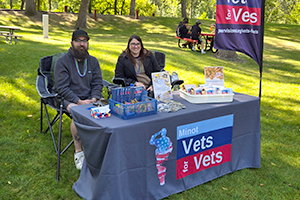
Rodriguez, and his wife, Chelsea, at an
outreach event in fall of 2025.
The Vets for Vets program welcomes active-duty military personnel and those seeking alternatives to traditional mental health systems. Support extends beyond the individual to families, who are invited to participate in activities addressing broader concerns. Segmented groups such as women's groups and all-veterans groups also ensure tailored support. Zoom access is available for those in remote communities, and all activities are confidential and not reported to any organization.
"It's been tremendously helpful to have this funding from BCBSND Caring Foundation because it has given us the ability to do outreach we otherwise would not have been able to do," said Huesers. "It has also helped us maintain in our vision the fact that it is not just the veterans who are concentrated here in Minot, it is the whole web of veterans in the surrounding areas, and we really need to maintain focus on those individuals and not leave them behind."
Despite reduced state funding, Peer Vision is diversifying its resources and building collaborations with organizations such as the VFW, area churches, Inspiritus Community Health Foundation, Together with Veterans, and the Vet Center. These partnerships strengthen the support network and ensure that services remain free for those in need.
Resources
For additional information or resources to assist North Dakota veterans, please reach out to any of the following:
- Peer Vision: (701) 500-1565, peervision4mh@gmail.com
- Vets for Vets: (701) 852-1924, minotvetsforvets@gmail.com
- North Dakota Veterans of Foreign Wars
- Together with Veterans: TWVMinot@gmail.com
- North Dakota Veterans Affairs: (701) 239-7165
- The Vet Center – four main locations in
North Dakota including:
- Bismarck: (701) 224-9751
- Fargo: (701) 237-0942
- Grand Forks: (701) 620-1448
- Minot: (701) 852-0177
